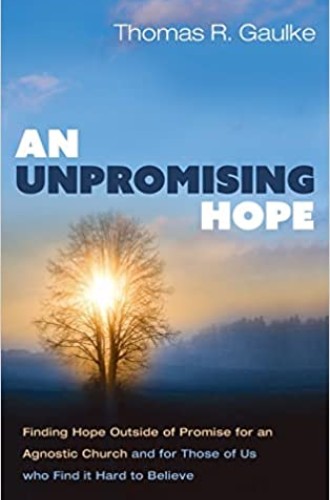So much of 21st-century theology is still coming to terms with the legacy of Jürgen Moltmann. His influential works, most famously Theology of Hope and The Crucified God, transformed much of the theological landscape of the 20th century.
Moltmann’s work on hope was influenced in large part by the Jewish philosopher Ernst Bloch. Which is to say, Moltmann developed a Christian theology of hope out of a secular Jewish Marxist philosophy of hope. One could argue that Thomas Gaulke’s book is an essay on fixing the supersessionism of Moltmann’s approach—while simultaneously deepening and enriching the global and ecumenical scope of his influence. In this way, Gaulke responds to the spirit even more than the effect of Moltmann’s work.
Gaulke’s task in An Unpromising Hope is rather fascinating. He is asking whether we can think about two complex theological terms, promise and hope, as riding alongside each other in such a way that we can establish a secular theology of hope that does not rely on Christian promise. (Gaulke defines the latter as a guarantee of a future reign of God, which is given or passed down to us.)





